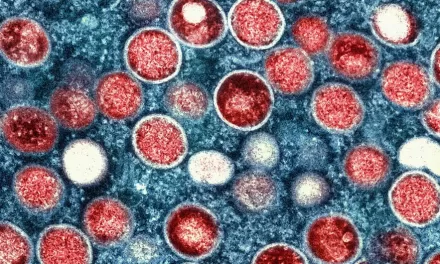Would-be fathers taking epilepsy medications, particularly valproate, can be reassured that current evidence does not point to significant developmental risks for their offspring, according to a recent systematic review published in the Journal of Neurology Neurosurgery & Psychiatry. While previous research has raised concerns about the effects of antiseizure drugs on fertility and potential risks to children, this comprehensive review casts doubt on those fears.
The study’s findings offer a counterpoint to the stance taken by the UK’s Medicines and Healthcare products Regulatory Agency (MHRA), which has maintained stricter regulations on the use of valproate in men. Valproate use during pregnancy has long been restricted due to its harmful effects on fetal development, but concerns about paternal use have been more speculative. Animal studies suggesting links between antiseizure drugs and male infertility, as well as congenital abnormalities, prompted further investigation into whether these risks applied to men as well.
In this review, researchers examined data from 10 studies selected from 923 initial articles that reported on neurodevelopmental disorders, birth abnormalities, and birthweight among the children of men taking antiseizure drugs at the time of conception. Despite the limited and inconsistent data, the review found no clear evidence of significant risk associated with these drugs. A few isolated adverse effects were reported, but they were not consistently observed across studies.
One of the most prominent findings came from a European Medicines Agency (EMA)-commissioned study using Scandinavian registry data. The study suggested a slight increase in the risk of neurodevelopmental disorders—about 5%—in children born to fathers who had taken valproate in the three months before conception. This compared to a 3% risk for other antiseizure drugs like lamotrigine and levetiracetam. However, the EMA concluded that the study’s methodological limitations made it difficult to confirm whether valproate was the primary cause of the increased risk.
Despite these concerns, in early 2024, the EMA recommended that valproate could still be prescribed to men with epilepsy, bipolar disorder, or migraines, provided that they were informed of potential risks and advised to use contraception. Regular reviews were recommended to ensure the ongoing suitability of the treatment for men planning to father children.
In contrast, the MHRA has maintained a more restrictive approach, prohibiting valproate prescriptions for men under 55 unless no other effective alternative was available or the possibility of parenthood was ruled out. In its most recent update, the MHRA reiterated the need for men on valproate to be aware of the potential risks and to use contraception during and for three months after treatment.
The authors of the systematic review questioned the MHRA’s restrictive stance, arguing that such measures could lead to inadequate seizure control, which carries risks of morbidity, mortality, and sudden unexpected death in epilepsy (SUDEP). They called for the MHRA to reconsider its position, particularly in light of findings from recent population-based studies that suggest minimal risk.
In an accompanying editorial, Professor Torbjörn Tomson of the Karolinska Institutet echoed these concerns. He emphasized that the peer-reviewed data from the systematic review challenged the findings of the EMA-initiated study and called for the MHRA restrictions to be revisited. “It is questionable to refer to the restriction as a precautionary measure when they place male patients with generalized epilepsies at risk of inadequate seizure control with potentially fatal consequences,” he wrote.
While concerns about the potential risks of paternal exposure to antiseizure drugs remain, both the systematic review and editorial suggest that the available evidence does not justify the strict restrictions currently in place, particularly in the UK. However, further research is needed to better understand the reproductive implications of these medications in men.
More Information:
Paternal exposure to antiseizure medications and offspring outcomes: a systematic review, Journal of Neurology Neurosurgery & Psychiatry (2024). DOI: 10.1136/jnnp-2024-334077.












